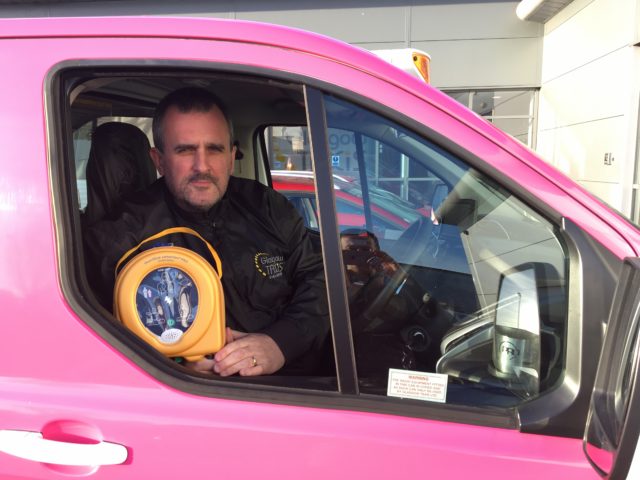Taxi drivers could be lifesavers as defibrillators installed in 15 cabs
Glasgow Taxis and Defib Machines have pledged to roll out more of the devices if the initiative is successful.

Scotland’s biggest taxi firm has installed defibrillators in 15 of their Glasgow cabs and trained drivers how to help people having heart attacks.
Drivers for Glasgow Taxis will be able to use the devices to assist with any incidents of cardiac arrest in or near to their cabs as they travel around the city.
Working in partnership with Defib Machines, the company said it will roll out more defibrillators to further vehicles if the initiative is successful.
Stephen Flynn, chairman of Glasgow Taxis Ltd, said: “We don’t just drive taxis and take people from A to B, we are committed to giving back whether that’s through charitable support, fundraising events or this latest initiative.
“By introducing 15 potentially life-saving defibrillators to our taxis we are utilising the very natural willingness of our drivers to help people along with a test of the benefits of having these machines available in our vehicles, not only for driver use but to the wider communities of Glasgow.
“It’s a modest outlay which we have committed to over a three-year period and if even one machine helps one person in that time, it will have been worth it many times over.”
Glasgow Taxis driver Stephen Lalley, who suffered heart problems last year, now carries one of the defibrillators in his car.

“Well that phrase could take on a whole new meaning now.
“I think it’s a brilliant idea and we’re all very proud to represent an organisation which wants to help the people of its city in ways such as this.”
Welcoming the decision, David McColgan from British Heart Foundation Scotland said: “A cardiac arrest is the ultimate medical emergency and every minute without CPR reduces a person’s chance of survival.
“Alongside administering CPR, the early use of a defibrillator is a key link in the chain of survival.
“When someone has a cardiac arrest every second counts and evidence shows that an individual is considerably more likely to survive discharge from hospital, and with favourable outcomes, if shocked by a bystander rather than having to wait for an ambulance.
“This is a positive contribution by Glasgow Taxis. It will increase the number of defibrillators and their visibility in the city.”





